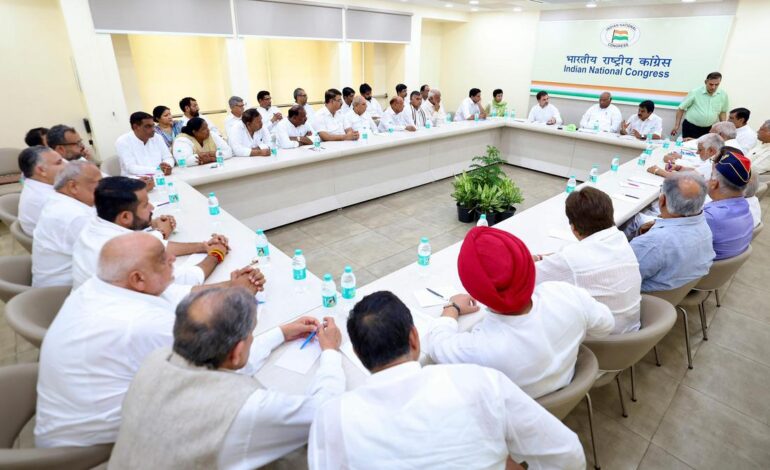
The recently concluded Haryana Assembly elections dealt a massive blow to the Indian National Congress, despite all-round early projections as the front runner. Many political analysts predicted a sweeping victory, with some forecasting a two-thirds majority for the party. Yet, as the results rolled in, Congress secured only 37 seats, eight short of a simple majority in the 90-seat assembly. While this result was better than its performance in 2014 and 2019, it was still far from what was expected.
More importantly, the Haryana verdict poses a big question mark on the grand old party’s national-level ambitions, especially in terms of its preparations for the forthcoming crucial assembly elections in Maharashtra and Jharkhand. If the party performed below par in a State like Haryana, which had signaled massive anti-incumbency against the ten-year regime of the Bharatiya Janata Party (BJP), can the Congress get its act together in Maharashtra and Jharkhand? Will the party be able to carry out a proper introspection, fix responsibilities for the defeat, and move forward? The signals from within the party do not indicate concrete moves in this direction.
In the case of Haryana, post-election blame quickly fell on Bhupinder Singh Hooda, the strongman of the Congress in the State, who is being widely criticized for failing to expand the party’s appeal beyond his core base of Jat voters. The Jat community, which makes up 27% of Haryana’s population, was not enough to secure a victory in a highly polarised election. But is Hooda solely responsible for the defeat? Or does the fault lie deeper within systemic issues of the party, marked by the absence of even a rudimentary organizational framework? And indeed, can the clutch of senior leaders who have held on to positions of power for decades be absolved for their lack of political acumen, imagination, and drive?
The Usual Suspects: Internal Factionalism and Polarization
Analysts have highlighted several reasons for Congress’s defeat, many of which are not unique to Haryana:
- Factionalism: The internal rift between the factions led by Hooda, Kumari Selja, and Randeep Surjewala within the party was palpable. This kind of infighting is common across State units in both Congress and BJP, but in Haryana, it appears to have hurt Congress’s chances more than expected.
- Rebels Contesting as Independents: Several Congress rebels ran as independents, further splitting the vote. This, again, is not unique to Congress—BJP has faced similar challenges with rebels, yet often manages to minimize the damage.
- Polarization Between Jat and Non-Jat Voters: The election also saw significant polarization, with non-Jat voters consolidating behind the BJP, making it difficult for Congress to broaden its voter base.
- Lack of Ground-Level Strategy: Congress struggled to mobilize voters at the booth level, a failure in grassroots organization that could have made the difference in a closely contested election.
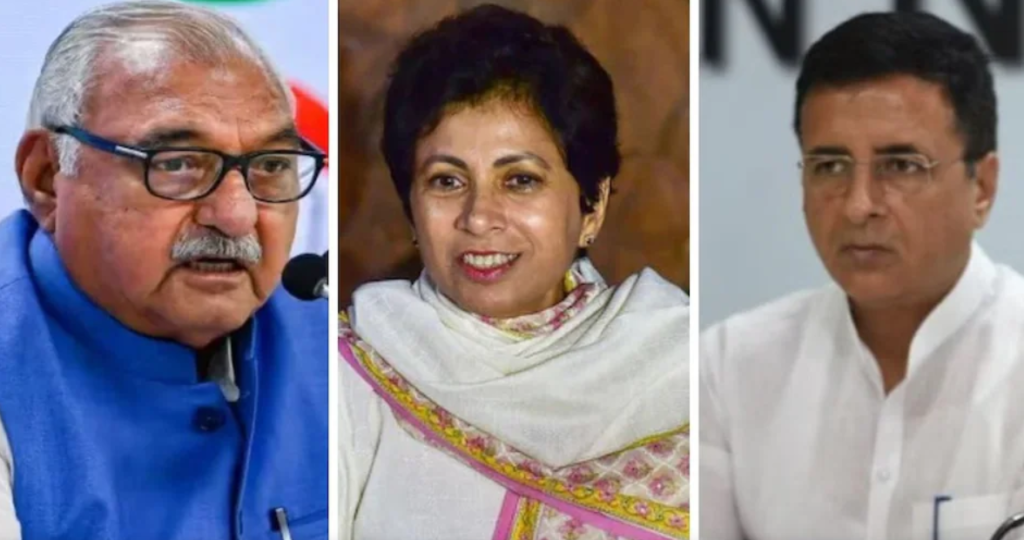
In the run-up to the polls, it seemed that Congress had taken steps to address some of these perennial issues. Deepak Babaria was appointed General Secretary in charge of Haryana nearly a year before the polls, specifically to tackle factionalism. Ajay Maken led the screening committee responsible for candidate selection. Senior observers, including Maken, were deployed by the central leadership to ensure the party stayed on course. Yet, none of these interventions seem to have worked. Shouldn’t these leaders, then, bear the responsibility for the party’s failure?
The Larger Problem: Congress’s Culture of Patronage Over Performance
What frustrates Congress supporters most is that those responsible for this defeat will likely face no repercussions. The party’s culture of preferring loyalty over performance has been deeply entrenched for decades. Under Sonia Gandhi’s leadership, people like Ahmed Patel, Janardan Dwivedi, and Ambika Soni wielded considerable influence, even as Congress lost ground in State after State. Now, under Rahul Gandhi, the same culture persists, albeit with new names.
Rahul’s close-knit team includes familiar faces like K.C. Venugopal, Ajay Maken, Avinash Pande, Randeep Surjewala, Deepak Babaria, and Bhanwar Jitendra Singh. These leaders, despite overseeing numerous electoral failures, continue to be recycled into key positions. Let’s take a closer look at their track record:
Deepak Babaria
Deepak Babaria has offered to resign after the poll debacle in Haryana. Before the 2024 Lok Sabha polls, Congress Delhi Unit President Arvinder Singh Lovely left the party over differences with Deepak Babaria. Congress won zero seats in Delhi in the Lok Sabha elections. Earlier, during his stint as the General Secretary in charge of Madhya Pradesh, Jyotiraditya Scindhia broke away with 22 MLAs, which led to the fall of the Kamal Nath government. Congress had returned to power in Madhya Pradesh after 15 years of BJP rule. Undeterred by this debacle, where he failed to manage political personalities who were politically more astute and accomplished than him, central leadership trusted him with Haryana, which had a similar situation. The results, unsurprisingly, are not different.
Ajay Maken
After the change of guards in 2014, when Rahul Gandhi started having a louder say in party affairs, Ajay Maken was given the reigns of the Delhi Congress in 2015. Ajay Maken, a 2-term MP from the New Delhi constituency, took the mantle from Sheila Dikshit, who served as a 3-term Chief Minister of Delhi until the Aam Aadmi Party(AAP) arrived and became a dominant force. During Maken’s 4-year tenure, AAP’s fortunes soared to near dominance in Delhi politics. AAP won 67 seats in 2015 and 62 seats in 2020. Congress got zero seats in both. Congress fared poorly in the 2017 municipality elections. Ajay Maken lost the 2014 and 2019 Lok Sabha elections from New Delhi Parliamentary constituency. He resigned in 2019, just before the Lok Sabha elections.
Ajay Maken was appointed AICC General Secretary in charge of Rajasthan in 2020, replacing Avinash Pande, another Rahul Gandhi favorite. Like Madhya Pradesh, a section of MLAs, under Sachin Pilot, revolted against the CM Ashok Gehlot. In September 2022, 90 MLAs of Rajasthan Congress didn’t attend a meeting convened by Maken and Kharge(he wasn’t the party President then). Maken later resigned from his post.
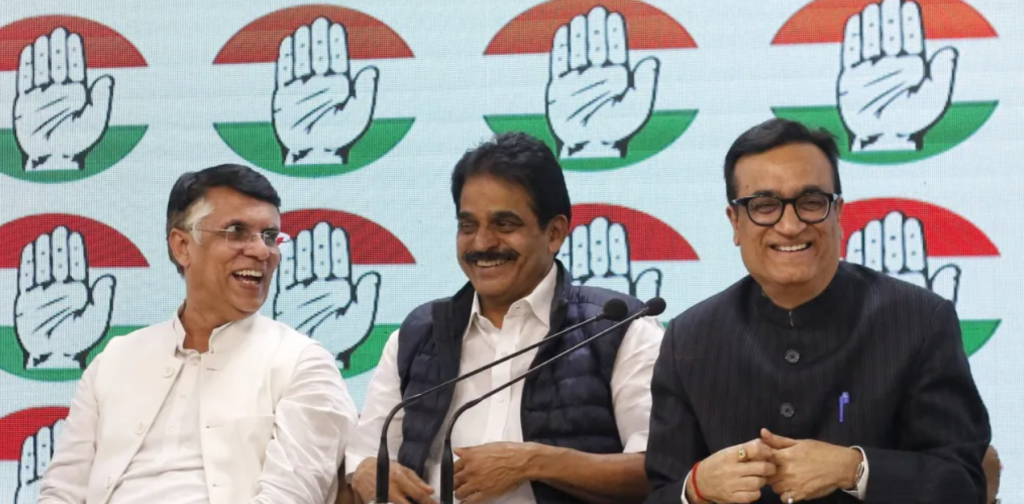
In June 2022, Maken lost the Rajya Sabha elections from Haryana after party MLAs cross-voted against him. In 2024, he was heading the screening committee constituted by the central organization to select candidates for the Haryana assembly elections. Many believe that party rebels ruined the chances of Congress’s imminent victory in the State. Ajay Maken is Congress’s current treasurer and Rajya Sabha MP from Karnataka.
K.C Venugopal
In January 2019, Rahul Gandhi, as the party president, appointed K.C Venugopal to the coveted post of General Secretary in charge of the organization, replacing the veteran Ashok Gehlot, under whose watch, the party came agonizingly close to winning Gujarat and won Madhya Pradesh, Rajasthan, and Chattisgarh in 2018.
Under K.C Venugopal’s watch, there have been defections in Madhya Pradesh, Karnataka, near defection in Rajasthan, Himachal Pradesh, and cross-voting in Rajya Sabha elections in Haryana, Himachal Pradesh. The party continues to lose State elections, some from winning positions like Chhattisgarh and Haryana, many notable political leaders have left the party, and the State units are increasingly weak in many States. It is nobody’s case that Congress has improved organizationally since 2019.
He now holds the position of Chairperson of the Committee on Public Accounts, a committee of the Parliament, earlier headed by Adhir Ranjan Chowdhary and Mallikarjun Kharge. They were the Leader of the Opposition in the Lok Sabha, the post currently occupied by Rahul Gandhi.
Avinash Pande
Avinash Pande was the General Secretary in charge of Rajasthan when the revolt happened in 2020, leading to the near fall of the Gehlot government. In the 2020 Bihar assembly elections, Avinash Pande was appointed to Chair the screening committee for candidates. The party’s poor performance resulted in the RJD-led alliance missing the majority mark.
In 2022 Uttarakhand assembly elections, he was appointed the head of the screening committee. Results bucked the trend of changing the party after every five years with the BJP returning to power. He is now the General Secretary in charge of Uttar Pradesh, replacing Priyanka Gandhi, under whose watch the party saw near decimation in the 2022 assembly elections.
Randeep Surjewala
Randeep Surjewala was in charge of party communications from 2015 to 2022. Jairam Ramesh replaced him in 2022. BJP dominated the narrative under his watch. Rahul Gandhi’s image suffered the most when the BJP communication team cast him as the proverbial “Pappu”(meaning dumb) until he took the Bharat Jodo Yatra, which changed the narrative in his favor.

In 2023, Randeep Surjewala was appointed General Secretary in charge of the Madhya Pradesh Congress after a win in the Karnataka assembly election under his watch. Congress lost the assembly elections in Madhya Pradesh badly. BJP cruised to a 2/3rd majority, defying a two-decade-long anti-incumbency, with Congress decreasing its tally from 114 to 66. Congress failed to win any seat in the 2024 Lok Sabha elections in Madhya Pradesh and managed only nine seats in Karnataka, where it is in power.
Ajay Kumar
Under Ajay Kumar’s watch, Congress has lost Odisha and Tripura. He was also in charge of Delhi for the 2022 Municipal elections, where Congress saw its tally reduced by 13 seats, winning only 9. AAP won 134, while BJP won 104. Ajay Kumar, a former MP from Jamshedpur, Jharkhand, and President of the Jharkhand State Congress Committee, left Congress and joined AAP in September 2019. He returned to Congress in 2020. He continues to be AICC in charge of Odisha, with an additional charge of Tamil Nadu and Puducherry.
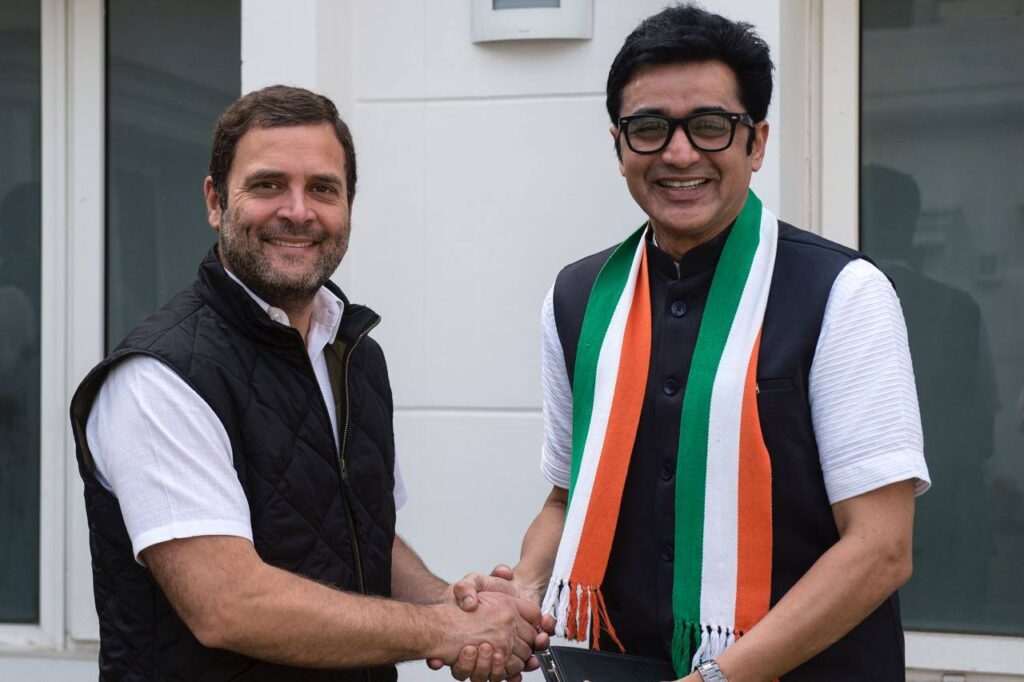
Jitendra Singh
In 2021, Congress appointed Jitendra Singh as head of the screening committee for Uttar Pradesh Assembly elections. The party got its lowest tally of 2 seats in the 2022 assembly elections, with a vote share of 2.3%. Later, Congress sent him to Uttar Pradesh to review its poll performance.
In 2023, Congress appointed Jitendra Singh as head of the screening committee for the Madhya Pradesh Assembly elections. The party got fewer number of seats in 2023 than it got in 2018. In 2020, Congress appointed him the AICC General Secretary in charge of Assam, a post he continues to hold. Congress lost the 2021 assembly elections, winning only 29 seats out of 95 it contested. BJP, which rules the State, won 60 out of 93 it contested. In Lok Sabha elections, Congress won 3 seats in 2024, the same as in 2019 and 2014.

In addition to these people, Mohan Prakash, who has failed in every responsibility the party has given him for almost a decade, continues to get patronage. His failures have not deterred Congress leadership from assigning him new responsibilities. He is currently AICC in charge of Bihar.
The Cycle of Failure
One might ask how a single appointment can significantly impact state party units. In hiring, it’s well-known that A-level people hire A+, while B-level people hire Cs or even Ds. These less capable hires then fill state units with individuals more incompetent than themselves, ultimately leading to the collapse of the organization, and rendering them defunct. This is precisely what happened to Congress in Uttar Pradesh during Priyanka Gandhi’s tenure as AICC General Secretary.

In any other organization, failure would result in serious introspection followed by substantive changes. In Congress, it results in a reshuffling of responsibilities among the same group of loyalists. This pattern of mediocrity is why the party continues to struggle, even in States where it has a strong chance of winning. Rather than bringing in new faces or experienced leaders who can adapt to the changing political landscape, Congress remains stuck in its old ways.
Until the party prioritizes performance over personal allegiance, it will continue to snatch defeat from the jaws of victory. Haryana is just the latest example of this systemic problem, and unless something changes at the organizational level, it won’t be the last.
Rahul Gandhi would do well to focus on trees that bear fruits of victory for the party and for him, instead of continuing to nurture these barren trees that fail to bear any fruits despite years of watering.


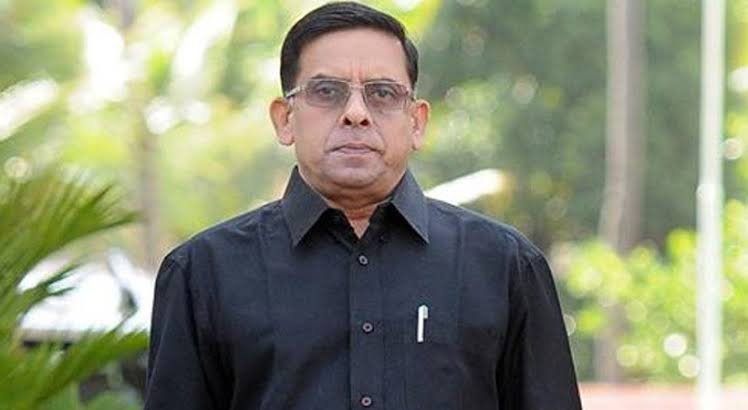







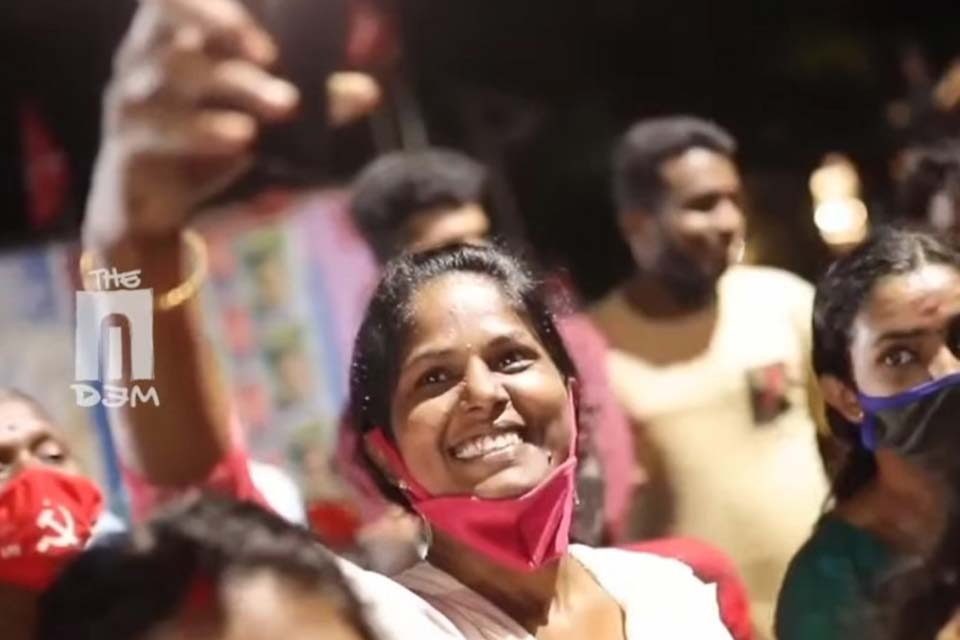

Incredible headline
Very well written analysis of Haryana election, covering every aspect of it very Comprehensively.